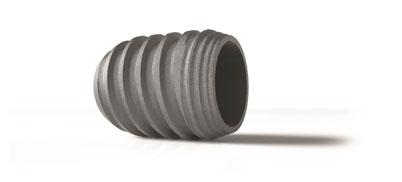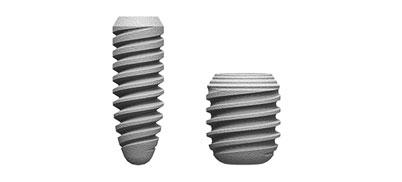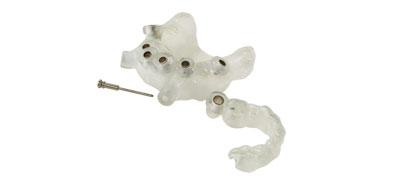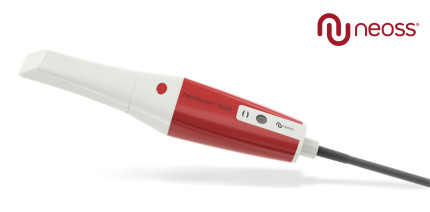implants - International Magazine
Weitere Informationen und Abo

OEMUS MEDIA AG
Weitere Informationen zum Unternehmen!

DGZI - Deutsche Gesellschaft für Zahnärztliche Implantologie e.V.
Weitere Informationen zur Fachgesellschaft!

Thommen Medical Deutschland GmbH
Weitere Informationen zum Unternehmen!
51th DGZI International Annual Congress - VISIONS IN IMPLANTOLOGY
Weitere Informationen und online anmelden!

DGZI - Deutsche Gesellschaft für Zahnärztliche Implantologie e.V.
Weitere Informationen zur Fachgesellschaft!

Dr. Rolf Vollmer
Weitere Artikel und Informationen zum Autor!
implants - International Magazine
Weitere Informationen und Abo

OEMUS MEDIA AG
Weitere Informationen zum Unternehmen!

DGZI - Deutsche Gesellschaft für Zahnärztliche Implantologie e.V.
Weitere Informationen zur Fachgesellschaft!

CAMLOG Vertriebs GmbH
Weitere Informationen zum Unternehmen!

CAMLOG Live-OP: „Implantatdesign für alle klinischen Indikationen“
Weitere Informationen und Anmeldung auf unserer Website!

Dr. med. dent. Marina Siegenthaler
Weitere Artikel und Informationen zum Autor!
Literaturverzeichnis
Weitere Informationen

Straumann Group Deutschland
Weitere Informationen zum Unternehmen!

Dr. med. dent. Marina Siegenthaler
Weitere Artikel und Informationen zum Autor!

DGZI - Deutsche Gesellschaft für Zahnärztliche Implantologie e.V.
Weitere Informationen zur Fachgesellschaft!
51th DGZI International Annual Congress - VISIONS IN IMPLANTOLOGY
Weitere Informationen und online anmelden!

Dr Jacques Vermeulen
Weitere Artikel und Informationen zum Autor!

Dr Jacques Vermeulen
Weitere Artikel und Informationen zum Autor!
ABO Service
Online Abo registrieren oder weitere Infos!

Dr. Ali Tunkiwala
Weitere Artikel und Informationen zum Unternehmen!

Dentsply Sirona
Weitere Informationen zum Unternehmen!

Dr. Ali Tunkiwala
Weitere Artikel und Informationen zum Autor!
Literaturverzeichnis
Weitere Informationen
ABO Service
Online Abo registrieren oder weitere Infos!

Dr. med. dent. Jochen Tunkel
Weitere Artikel und Informationen zum Autor!

Argon Dental
Weitere Informationen zum Unternehmen!

K3Pro
Weitere Informationen zum Produkt!

K3Pro Short-Implantate
Weitere Informationen zum Produkt!

K3Pro Compress Implantate
Weitere Informationen zum Produkt!

K3Pro Rapid
Weitere Informationen zum Produkt!

K3Pro Rapid Surgery System
Weitere Informationen zum Produkt!

Dr. med. dent. Jochen Tunkel
Weitere Artikel und Informationen zum Autor!
Literaturverzeichnis
Weitere Informationen

Neoss GmbH
Neoss GmbH

NeoScan™ 1000: Neuer, einfach zu bedienender Intraoralscanner
Weitere Informationen zum Produkt!
NeoScan 1000 – Einfache Anwendung & Schnelles Scannen
Weitere Informationen in unserem Video!

Dr Marco Toia
Weitere Artikel und Informationen zum Autor!

Dr Marco Toia
Weitere Artikel und Informationen zum Autor!

Neoss GmbH
Weitere Informationen zum Unternehmen!
NeoScan 1000 – Einfache Anwendung & Schnelles Scannen
Weitere Informationen in unserem Video!

Neoss GmbH
Weitere Informationen zum Unternehmen!
NeoScan 1000 – Einfache Anwendung & Schnelles Scannen
Weitere Informationen in unserem Video!

Neoss GmbH
Weitere Informationen zum Unternehmen!
NeoScan 1000 – Einfache Anwendung & Schnelles Scannen
Weitere Informationen in unserem Video!

Thommen Medical Deutschland GmbH
Weitere Informationen zum Unternehmen!
Thommen Medical auf der EuroPerio10
Weitere Bilder und Artikel zum Thema!

Straumann Group Deutschland
Weitere Informationen zum Unternehmen!

Dentsply Sirona
Weitere Informationen zum Unternehmen!

Thommen Medical Deutschland GmbH
Weitere Informationen zum Unternehmen!

Neoss GmbH
Weitere Informationen zum Unternehmen!
NeoScan 1000 – Einfache Anwendung & Schnelles Scannen
Weitere Informationen in unserem Video!

CAMLOG Vertriebs GmbH
Weitere Informationen zum Unternehmen!

Argon Dental
Weitere Informationen zum Unternehmen!
EuroPerio10 – so jung, dynamisch und spannend wie noch nie
Weitere Bilder und Artikel zum Thema!

DGZI - Deutsche Gesellschaft für Zahnärztliche Implantologie e.V.
Weitere Informationen zur Fachgesellschaft!
51th DGZI International Annual Congress - VISIONS IN IMPLANTOLOGY
Weitere Informationen und online anmelden!

Dr. Rolf Vollmer
Weitere Artikel und Informationen zum Autor!

Dr. Rolf Vollmer
Weitere Artikel und Informationen zum Autor!
implants - International Magazine
Weitere Informationen und Abo

OEMUS MEDIA AG
Weitere Informationen zum Unternehmen!
